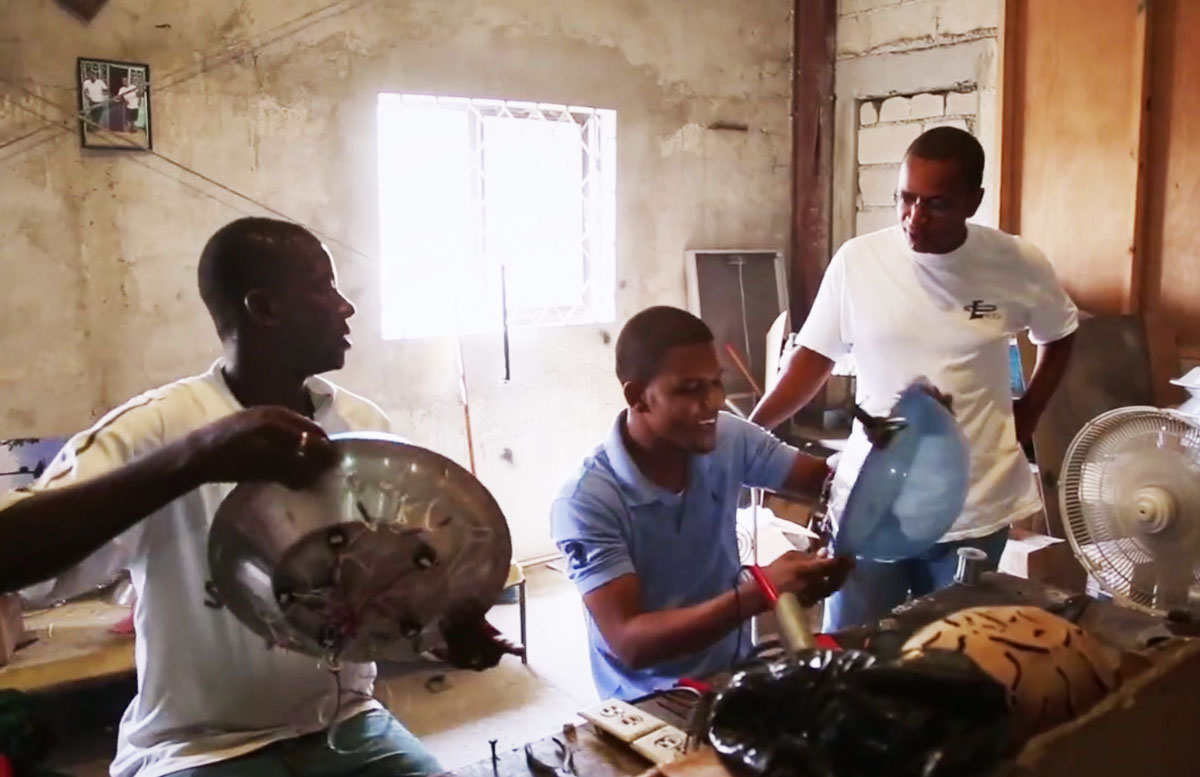Jean-Ronel Noel and Alex Georges began their company in a garage in Haiti, tinkering with solar panels and light bulbs, wondering how their experiments might translate into an actual product. “We have plenty of sunshine, so is there a way that we can harvest energy from the sun to resolve the energy problem?” they asked.
The result was ENERSA, a company that brings solar-paneled street lights and a range of domestic solar products to the Haitian market. Since its beginning, the company has grown tremendously, staffing 62 employees and installing over 200 lights in Cite Solei alone.
Hear more about their story in the following excerpt from Poverty, Inc.:
In a country with high crime and no safety net, ENERSA is serving a transformative social function in cultivating the human capital of its community and providing safety and security for its employees.
As Jean-Ronel explains, the company is not only providing light to Haiti’s cities; it’s providing an economic future for Haitians:
Most of the employees we have come from shanty towns. Some from Cite Soleil, some from Maissade, Cite Castro, you know very populated area. We train them here. There is no social security network in Haiti, so for our workers, we are the social security network. If they were not working, probably some of them would be gang members.
In fact, when we were starting ENERSA, the situation was really, really bad in Haiti, and some of the guys, they are trying to recruit them to be gang members. They offer you $500 and a gun, and you are an unemployed guy, you have no future, so you don’t see yourself a part of nothing, so it’s easy to accept this offer. The temptation is high.
Some of the guys—at the beginning we were really smart and they were calling me and saying, “I have no money. I have nothing.” I would say, “Don’t go there. Don’t go there, because you have no future in the gang.”
Later in the film (available here or on Netflix), we learn that the recent earthquake nearly destroyed the company — not because of damage to the facilities or employees, but because of the international relief effort and “free” products that began to enter the Haitian market. After a flurry of NGOs flooded the market with solar panels, ENERSA went from selling 50 solar panels per month to selling only five in half a year.
The company has regained its footing and continues to thrive, despite such interruptions, but the impact of international aid is a reality worth considering if we hope to truly empower entrepreneurs like Lean-Ronel and Alex.
ENERSA is a shining example of where real, long-term development comes from and an inspiring reminder that entrepreneurs like Jean-Ronel and Alex are not anomalies in the developing world. Each community holds tremendous human capital and potential, no matter the country’s GDP or economic climate. They’re not waiting on “relief.” They’re simply waiting to be unleashed.
Image: PovertyCure
